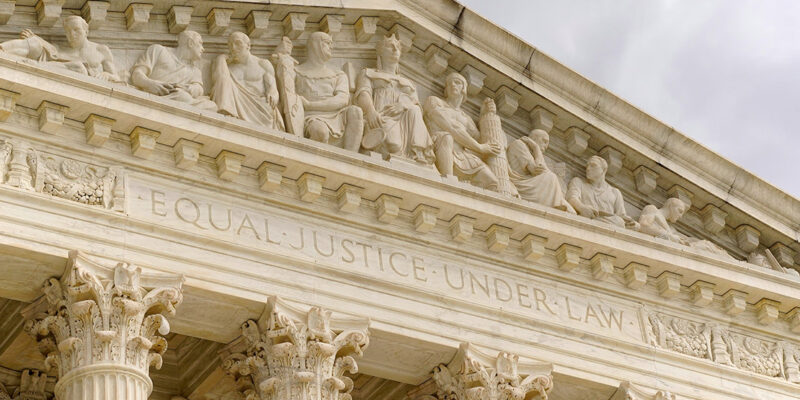Supreme Court Term 2023-2024
We’re breaking down the cases we've asked the court to consider this term.
Latest Case Updates
Ongoing
Updated October 15, 2024
Ongoing
Updated October 11, 2024
Ongoing
Updated September 27, 2024
Ongoing
Updated September 12, 2024
Featured
Georgia
Oct 2024

Voting Rights
Eternal Vigilance Action, Inc. v. Georgia
The ACLU and partner organizations have sought to intervene in this case to represent the rights of voters and voting-rights organizations in a case challenging a number of rules passed by the Georgia State Election Board. We challenge a rule that requires that the number of votes cast be hand counted at the polling place prior to the tabulation of votes. This rule risks delay and spoliation of ballots, putting in danger voters’ rights to have their votes count.
Nebraska Supreme Court
Oct 2024
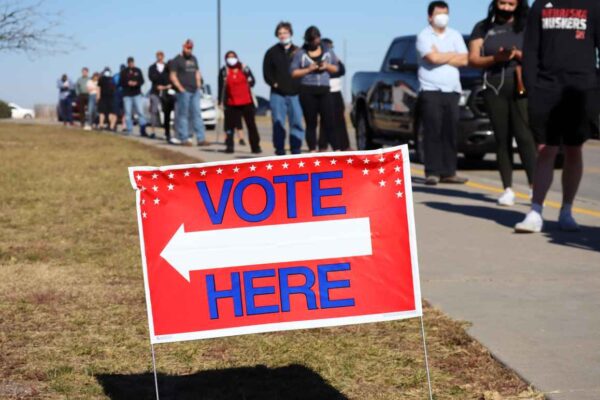
Voting Rights
Spung v. Evnen
Less than four months before the November 2024 presidential election, the Nebraska Secretary of State issued a directive embracing a non-binding opinion issued by the state Attorney General that would essentially reinstate permanent felony disenfranchisement and re-disenfranchise tens of thousands of Nebraska citizens. This directive is violative of both the Nebraska Constitution and several state statutes, and urgent relief is needed to avoid mass disenfranchisement of an entire class of Nebraska citizens.
Texas
Oct 2024
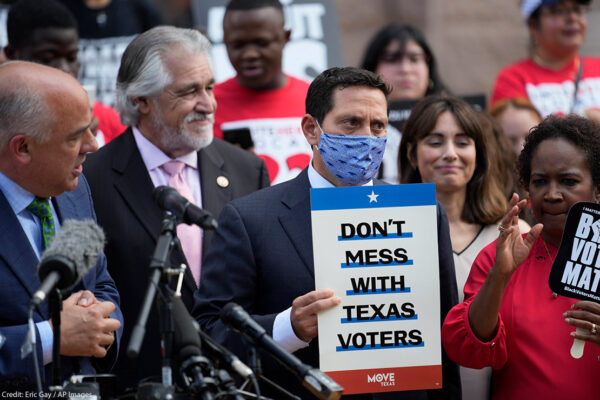
Voting Rights
OCA-Greater Houston v. Paxton
Texas has growing Hispanic and Black populations that helped propel record voter turnout in the November 2020 election. The Texas Legislature responded to this increased civic participation with an omnibus election bill titled Senate Bill 1—SB 1 for short—that targeted election practices that made voting more accessible to traditionally marginalized voters like voters of color, voters with disabilities, and voters with limited English proficiency. Since 2021, SB 1 has resulted in tens of thousands of lawful votes being rejected, and it remains a threat to democracy in Texas.
Michigan
Sep 2024
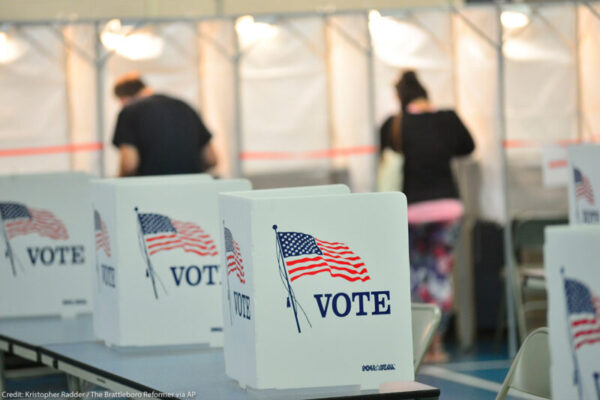
Voting Rights
ACLU of Michigan v. Froman
Michigan requires boards of county canvassers to certify the results of an election within 14 days after the election based on the total number of votes reported from each location. The law doesn't allow them to withhold certification. Kalamazoo Board of County Canvassers member, Robert Froman, has made clear that he would decline to certify the November 2024 election under certain circumstances. This lawsuit asks the state's courts to make clear that Mr. Froman is duty bound to certify the election based on the number of votes reported.
Ohio
Sep 2024

Reproductive Freedom
Planned Parenthood Southwest Ohio Region et al., v. Ohio Department of Health, et al.
The American Civil Liberties Union, the ACLU of Ohio, Planned Parenthood Federation of America, the law firm WilmerHale, and Fanon Rucker of the Cochran Law Firm, on behalf of Planned Parenthood Southwest Ohio Region, Planned Parenthood of Greater Ohio, Preterm-Cleveland, Women’s Med Group Professional Corporation, Dr. Sharon Liner, and Julia Quinn, MSN, BSN, amended a complaint in an existing lawsuit against a ban on telehealth medication abortion services to bring new claims under the Ohio Reproductive Freedom Amendment, including additional challenges to other laws in Ohio that restrict access to medication abortion in the state.
U.S. Supreme Court
Sep 2024

Voting Rights
Callais v. Landry
Whether the congressional map Louisiana adopted to cure a Voting Rights Act violation in Robinson v. Ardoin is itself unlawful as a gerrymander.
South Carolina Supreme Court
Jul 2024
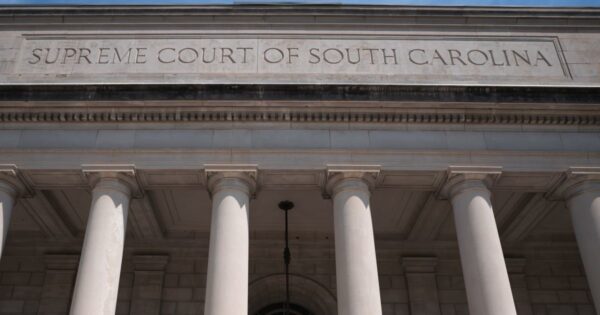
Voting Rights
League of Women Voters of South Carolina v. Alexander
This case involves a state constitutional challenge to South Carolina’s 2022 congressional redistricting plan, which legislators admit was drawn to entrench a 6-1 Republican majority in the state’s federal delegation. Plaintiff the League of Women Voters of South Carolina has asked the state’s Supreme Court to conclude that the congressional map is an unlawful partisan gerrymander that violates the state constitution.
Ohio
Jul 2024
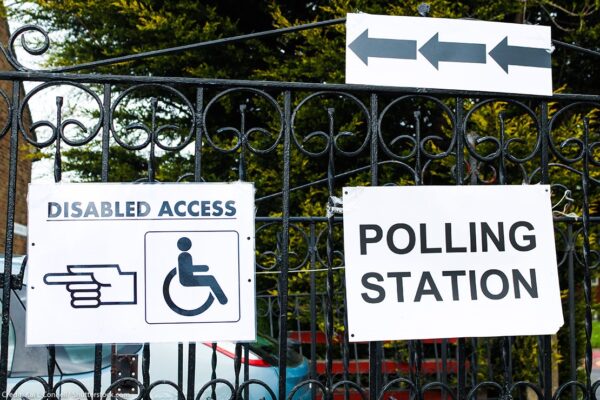
Voting Rights
League of Women Voters of Ohio v. LaRose
In Ohio, HB 458 makes it a felony for any person who is not an election official or mail carrier to return an absentee voter's ballot—including voters with disabilities—unless the person assisting falls within an unduly narrow list of relatives. We are challenging the law because it violates Section 208 of the Voting Rights Act (VRA) and the American with Disabilities Act (ADA) by making it exceedingly difficult for voters with disabilities to cast their ballots.
U.S. Supreme Court
Apr 2024

Reproductive Freedom
Idaho and Moyle, et al. v. United States
Idaho and Moyle, et al. v. United States was appealed to the U.S. Supreme Court by Idaho politicians seeking to disregard a federal statute — the Emergency Medical Treatment and Labor Act (EMTALA) — and put doctors in jail for providing pregnant patients necessary emergency medical care. The Supreme Court heard oral arguments on this case on April 24, 2024. The Court’s ultimate decision will impact access to this essential care across the country.
Stay informed about our latest work in the courts.
By completing this form, I agree to receive occasional emails per the terms of the ACLU's privacy statement.
All Cases
1,486 Court Cases

Nebraska
Aug 2017
Prisoners' Rights
Sabata v. Nebraska Department of Corrections et al
Nebraska state prisons are in a state of chaos that is endangering the health, safety, and lives of prisoners and staff on a daily basis. For over twenty years, Nebraska prisons have been overcrowded, under-resourced, and understaffed. Prisoners are consistently deprived of adequate health care, including medical, dental, and mental health care, and denied accommodations for their disabilities. Nebraska state prisoners, including juveniles, suffer in harsh isolation units for excessive terms, sometimes lasting for years. These harms must end.
Explore case
Nebraska
Aug 2017

Prisoners' Rights
Sabata v. Nebraska Department of Corrections et al
Nebraska state prisons are in a state of chaos that is endangering the health, safety, and lives of prisoners and staff on a daily basis. For over twenty years, Nebraska prisons have been overcrowded, under-resourced, and understaffed. Prisoners are consistently deprived of adequate health care, including medical, dental, and mental health care, and denied accommodations for their disabilities. Nebraska state prisoners, including juveniles, suffer in harsh isolation units for excessive terms, sometimes lasting for years. These harms must end.
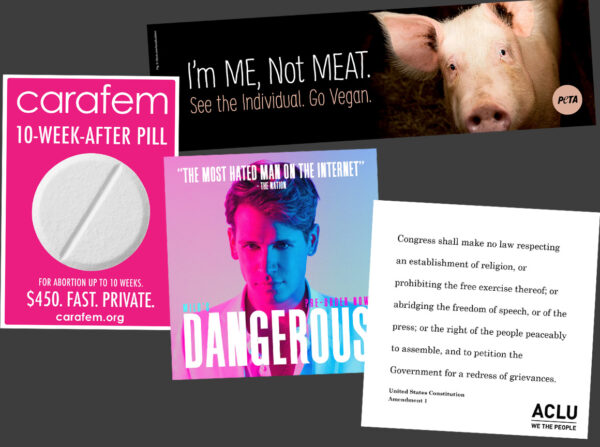
Washington, D.C.
Aug 2017
Free Speech
ACLU et al. v. WMATA – First Amendment Challenge to D.C. Metro’s Advertising Restrictions
The ACLU and its affiliates in the District of Columbia and Virginia challenged the Washington area transit system’s advertising restrictions as violations of the First Amendment. The free speech lawsuit follows the rejection of ads from four groups that hail from across the political spectrum.
Explore case
Washington, D.C.
Aug 2017

Free Speech
ACLU et al. v. WMATA – First Amendment Challenge to D.C. Metro’s Advertising Restrictions
The ACLU and its affiliates in the District of Columbia and Virginia challenged the Washington area transit system’s advertising restrictions as violations of the First Amendment. The free speech lawsuit follows the rejection of ads from four groups that hail from across the political spectrum.

Louisiana
Aug 2017
Smart Justice
Ayo v. Dunn et al
For years, people arrested in East Baton Rouge Parish who appeared before Judge Trudy White have been jailed unless they pay a $525 fee to a private corporation called Rehabilitation Home Incarceration (“RHI”). This fee is paid by each person for their own pre-trial release. This fee is paid in addition to any bail amount required by the judge as a condition for that person’s release. This has been going on for at least three years in the parish.
Explore case
Louisiana
Aug 2017

Smart Justice
Ayo v. Dunn et al
For years, people arrested in East Baton Rouge Parish who appeared before Judge Trudy White have been jailed unless they pay a $525 fee to a private corporation called Rehabilitation Home Incarceration (“RHI”). This fee is paid by each person for their own pre-trial release. This fee is paid in addition to any bail amount required by the judge as a condition for that person’s release. This has been going on for at least three years in the parish.
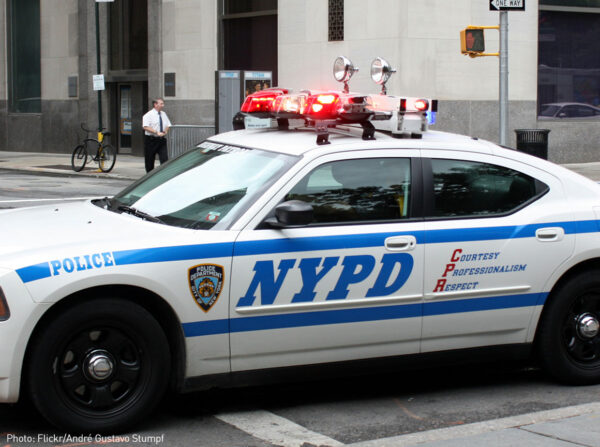
Aug 2017
National Security
Raza v. City of New York - Legal Challenge to NYPD Muslim Surveillance Program
The ACLU, the NYCLU, and the CLEAR project at CUNY Law School filed a lawsuit in June 2013 challenging the New York City Police Department's discriminatory and unjustified surveillance of New York Muslims. We were later joined by the law firm of Morrison & Foerster LLP. The plaintiffs include three religious and community leaders, two mosques, and one charitable organization, all of whom were subject to the NYPD's unconstitutional religious profiling program. In January 2016, we announced a proposed settlement in the case with important reforms that include a bar against NYPD investigations on the basis of race, religion, or ethnicity, and the creation of a civilian representative position to oversee rules that safeguard against discriminatory and unjustified NYPD surveillance. That settlement was a joint one, with both the NYPD and the lawyers in Handschu v. Special Services Division, a long-standing class action that challenged the NYPD’s unlawful surveillance of political groups and activists. In October 2016, the federal district court judge presiding over the Handschu case held that he would approve the settlement if the parties agreed to three alterations, which would further strengthen protections. In March 2017, the courts in both Handschu and Raza approved the revised settlement.
Explore case
Aug 2017

National Security
Raza v. City of New York - Legal Challenge to NYPD Muslim Surveillance Program
The ACLU, the NYCLU, and the CLEAR project at CUNY Law School filed a lawsuit in June 2013 challenging the New York City Police Department's discriminatory and unjustified surveillance of New York Muslims. We were later joined by the law firm of Morrison & Foerster LLP. The plaintiffs include three religious and community leaders, two mosques, and one charitable organization, all of whom were subject to the NYPD's unconstitutional religious profiling program. In January 2016, we announced a proposed settlement in the case with important reforms that include a bar against NYPD investigations on the basis of race, religion, or ethnicity, and the creation of a civilian representative position to oversee rules that safeguard against discriminatory and unjustified NYPD surveillance. That settlement was a joint one, with both the NYPD and the lawyers in Handschu v. Special Services Division, a long-standing class action that challenged the NYPD’s unlawful surveillance of political groups and activists. In October 2016, the federal district court judge presiding over the Handschu case held that he would approve the settlement if the parties agreed to three alterations, which would further strengthen protections. In March 2017, the courts in both Handschu and Raza approved the revised settlement.
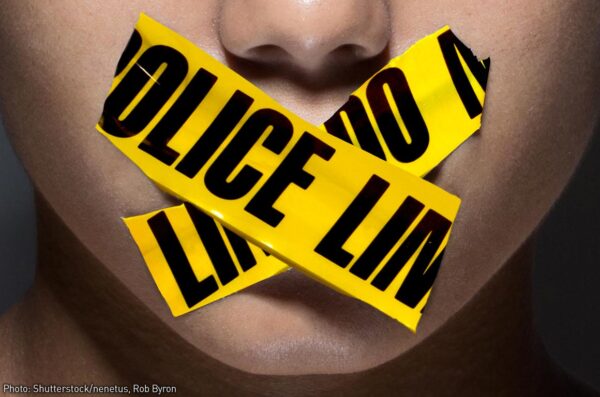
Aug 2017
Women's Rights
Board of Trustees of the Village of Groton v. Pirro
The case involves Groton’s enforcement of its nuisance ordinance against a landlord based on calls for police service, circumstances that did not constitute criminal activity, and other unjustified grounds. The ACLU filed an amicus brief that highlighted the serious due process and First Amendment issues with the ordinance, as well as the impact of these ordinances on domestic violence survivors and people with disabilities.
Explore case
Aug 2017

Women's Rights
Board of Trustees of the Village of Groton v. Pirro
The case involves Groton’s enforcement of its nuisance ordinance against a landlord based on calls for police service, circumstances that did not constitute criminal activity, and other unjustified grounds. The ACLU filed an amicus brief that highlighted the serious due process and First Amendment issues with the ordinance, as well as the impact of these ordinances on domestic violence survivors and people with disabilities.
